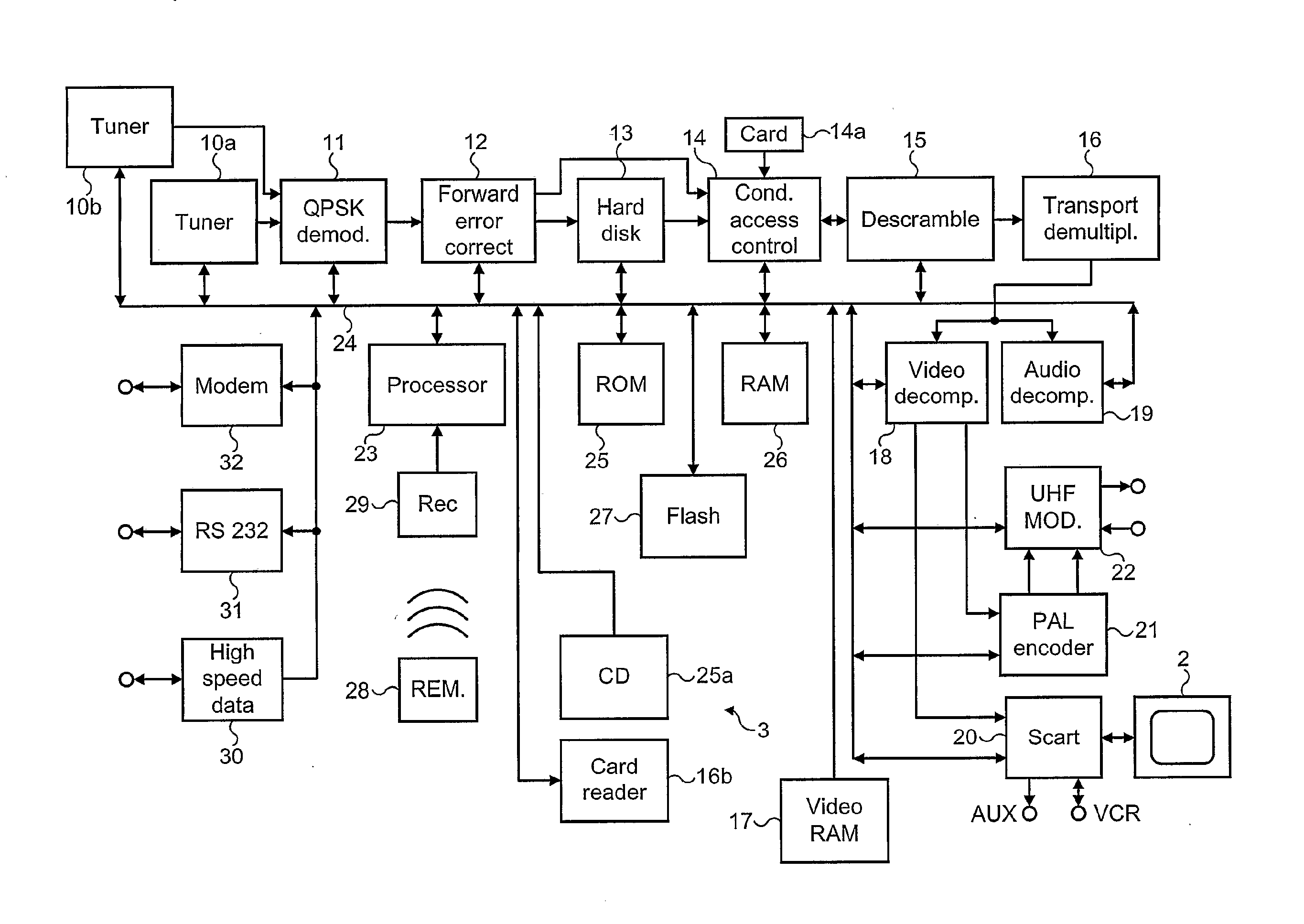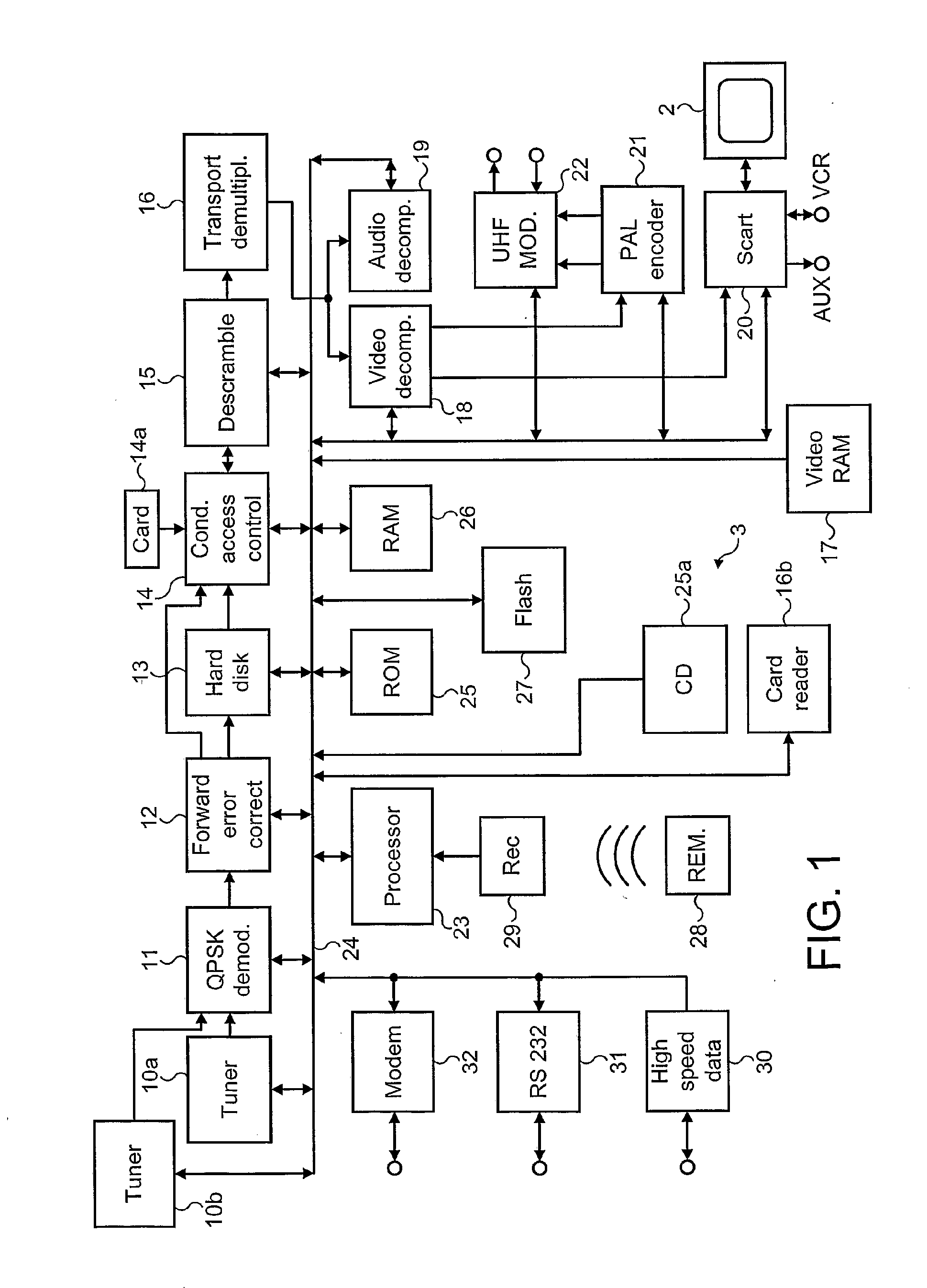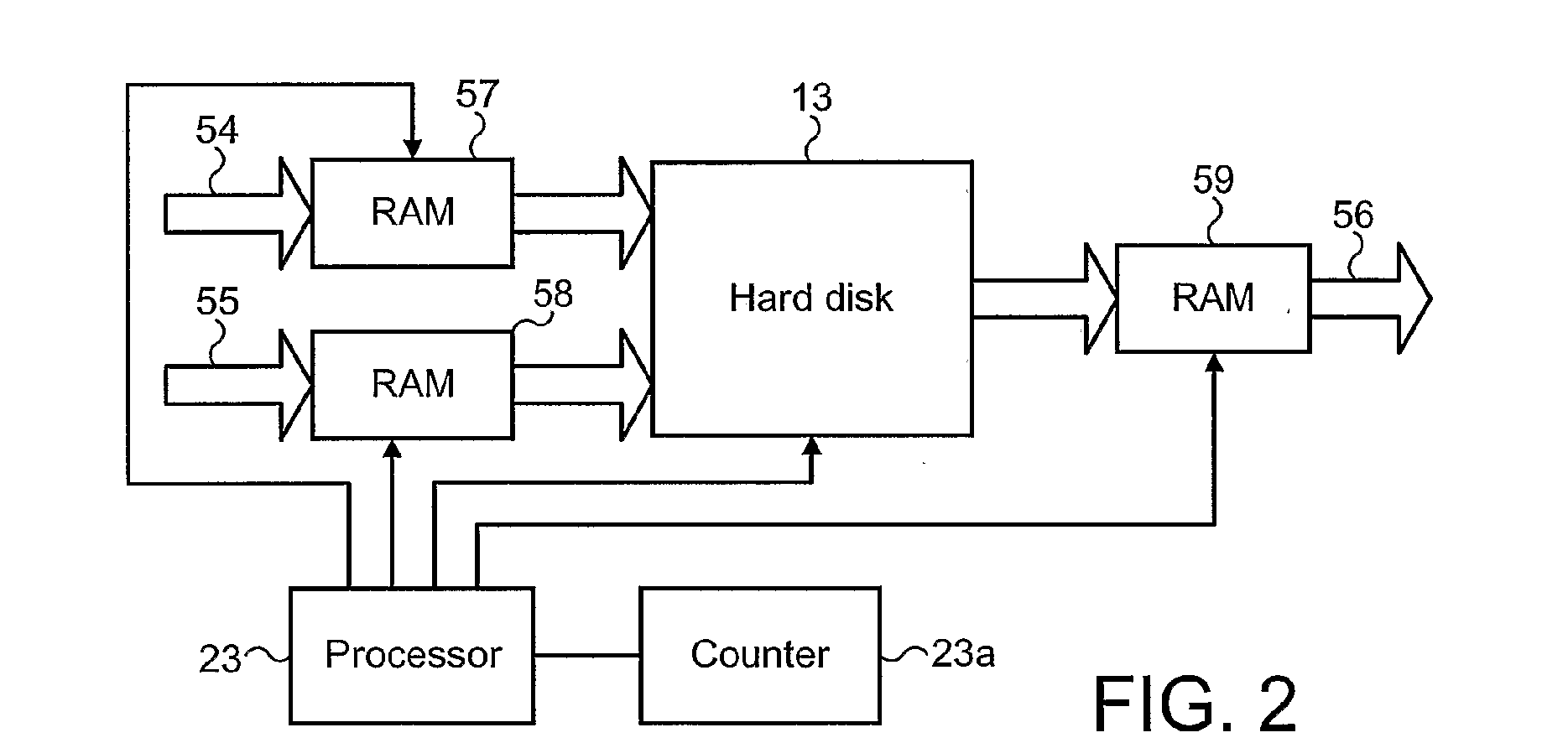Receivers for television signals
a television signal and receiver technology, applied in the field of television signal receivers, can solve the problems of increasing the amount of time that can be recorded in cyclic files, complex, and difficult to compress without introducing unwanted artefacts, and achieve the effect of converting the file from a buffer
- Summary
- Abstract
- Description
- Claims
- Application Information
AI Technical Summary
Benefits of technology
Problems solved by technology
Method used
Image
Examples
Embodiment Construction
[0051]FIG. 1 of the accompanying drawings shows a “set top box” or receiver 3 for receiving television signals from a satellite television broadcast network. In this example, received signals are input to first and second tuners 10a and 10b but any plural number of tuners may be used in the receiver 3. The tuners 10a and 10b are tuneable into the same or different channels of the satellite television broadcast network for simultaneous reception of the same or different television programmes. Signals from the first and second tuners 10a and 10b are passed to a Quadrature Phase Shift Key (QPSK) demodulator 11. Demodulated signals are error-corrected by way of a forward error corrector circuit 12. The receiver 3 has a hard disk 13 which receives from the forward error corrector circuit 12 compressed video and audio data representing received television programmes for recording and subsequent playback, as described in greater detail below.
[0052]The received signals comprise digitally en...
PUM
 Login to View More
Login to View More Abstract
Description
Claims
Application Information
 Login to View More
Login to View More - R&D
- Intellectual Property
- Life Sciences
- Materials
- Tech Scout
- Unparalleled Data Quality
- Higher Quality Content
- 60% Fewer Hallucinations
Browse by: Latest US Patents, China's latest patents, Technical Efficacy Thesaurus, Application Domain, Technology Topic, Popular Technical Reports.
© 2025 PatSnap. All rights reserved.Legal|Privacy policy|Modern Slavery Act Transparency Statement|Sitemap|About US| Contact US: help@patsnap.com



